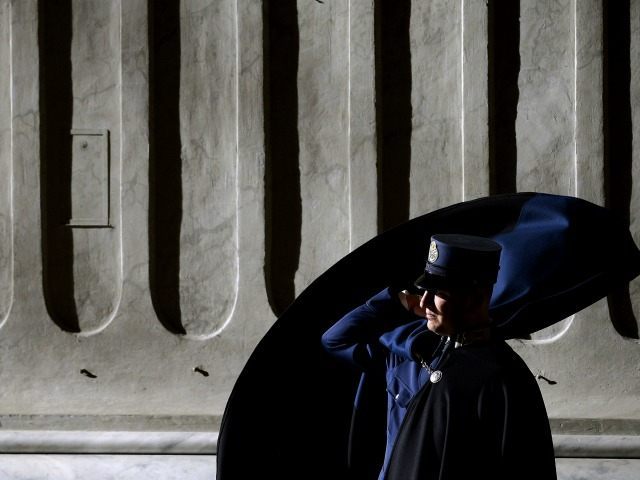After the horrendous jihadists attacks in Brussels Monday, Rome has declared a maximum terror alert in view of the impending Easter celebrations when more than 150,000 pilgrims and tourists are expected to descend upon the Vatican.
Vatican security was already exceptionally tight, but the recent assault has raised the ante considerably and Rome has responded with intensified security measures at railway stations, subway, airports and famous landmarks.
The ubiquitous patrols are intentionally visible to all, both to reassure visitors and discourage any would-be trouble makers. Vigilance is especially intensified at key points of aggregation where tourists will be congregating during the Easter holidays.
Nowhere is security higher than around the Vatican itself, as the epicenter of the waves of pilgrims entering Rome for Holy Week and Easter.
The area around St. Peter’s Square is fully barricaded, and visitors are required to follow predetermined paths to enter or exit the plaza, after having passed through metal detectors and a gauntlet of security personnel.
Security controls had already been intensified in recent months, but with the new terrorist alert, they have been further enhanced. More than a thousand sensitive targets throughout the city are now under permanent surveillance, with both fixed and mobile watches. Along with religious shrines and historical monuments, other potential targets such as schools, theaters and newspaper offices are all under watch.
The prefect of Rome, Franco Gabrielli, said that after the Brussels attacks, which resulted in 31 deaths and scores of wounded, the police presence in Rome has been increased and further military contingents have been requested, to add to the army units already patrolling the city.
Traffic in Rome has increased significantly because of the fear of terror attacks, with many avoiding the subway in preference of above-ground transportation. “I left the house a half hour earlier by car to avoid taking the subway,” a woman named Luigina told the ANSA News Service. “I am very concerned that what happened in Paris and Brussels could also happen in Italy.”
“I have to take the subway every day to go to work,” said Giulia, a lawyer who works at law office not far from the Vatican. “This morning when I got on the train I was afraid. I looked around to see if I noticed an abandoned backpack or any suspicious person.”
Follow Thomas D. Williams on Twitter Follow @tdwilliamsrome

COMMENTS
Please let us know if you're having issues with commenting.